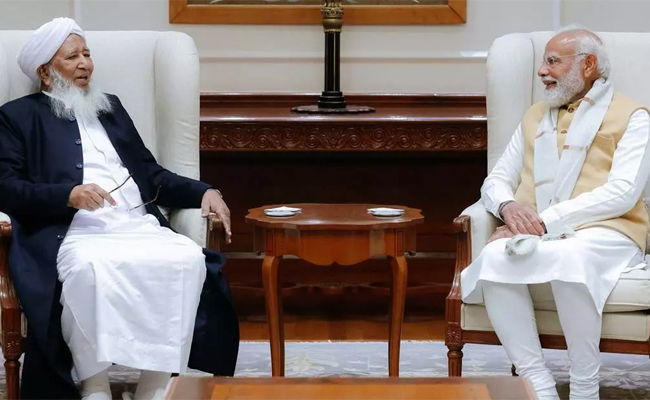Mumbai: Cracking the whip, the Mumbai police on Saturday lodged three new FIRs against various pub owners and issued a lookout notice for the absconders in wake of the blaze in Kamala Mills Compound which left 14 dead and 55 injured, an official said.
Police have also set up five teams to trace the owners of 1Above pub, Hitesh Sanghvi, his brother Jigar Sanghvi and partner Abhijit Manka, and Yug Pathak, a co-owner of of The Mojos Bistro, who is the son of a retired IPS officer.
Simultaneously, police have issued "look-out notice" to prevent them from leaving the country, while police teams have gone to Pune and other cities to hunt for them, the official said.
Additionally, following a complaint by the BrihanMumbai Municipal Corporation (BMC) under the Maharashtra Regional Town Planning Act (MRTP), police have lodged a FIR against the owner of Kamala Mills, Ramesh Govani and others who are still not traceable.
In an action-packed day, teams of the BMC demolition squads swooped down on scores of hotels, restaurants, pubs, eateries and other places where people are likely to converge for New Year Eve parties with hammers and crowbars to raze illegal structures.
In what is billed as the single biggest demolitions in a day, several illegal constructions were razed at major locations within the Kamala Mills Compound and the adjacent Raghuvanshi Mills and Phoenix Mills complexes, and other places in the city and suburbs.
According to a BMC official, who declined to be named, Saturday's mega-demolition drive covered around 200 locations across Mumbai, but largely concentrated in Lower Parel-Mahalaxmi areas.
The demolition squads targeted illegal extensions to premises, decorative arches and metal grilles inside or outside, double-triple or revolving doors, raised entrances/exits, ornamental fixtures and fittings, massive flower pots or plants, unauthorized temporary roofs, walls, partitions, any external/internal obstacles to free movements, etc, which could prove to be a safety hazard in case of any emergency like Friday's fire.
The erstwhile 50-plus textile mills which used to churn out lakhs of metres of cotton fabrics daily, went silent after the Great Bombay Textile strike of 1982. Spread across prime real estate of more than 500 acres in south-central Mumbai, they have now been transformed into glittering corporate, media, communications, glamour and eating hubs, besides some of the tallest and most expensive residential and commercial towers in the vicinity.
BMC Commissioner Ajoy Mehta has already set up 25 teams which will inspect implementation of safety norms at all hotels, restaurants, bars, pubs, malls in the sprawling Kamala Mills Compound and other surrounding areas in Lower Parel.
In fact, the preliminary inspection by the BMC on Friday detected an unauthorized partition wall and two rooms, besides an illegal plastic roof supported with bamboos which was reduced to ashes in the early Friday morning blaze.
Amidst a public uproar with the fire incident figuring in Parliament on Friday, the BMC suspended five officials including a fire brigade officer, hours after the conflagration.
Mumbai Congress President Sanjay Nirupam on Saturday however termed the ongoing demolitions as "a mere eyewash" in view of the public anger and demanded the suspension of the BMC commissioner for the lapses over which he is presiding.
Leader of Opposition in Maharashtra Assembly Radhakrisha Vikhe-Patil, who demanded a Central Bureau of Investigation (CBI) probe, called for removal of Mehta and holding him responsible for Friday's tragedy.
Incidentally, Maharashtra Navnirman Sena activist Mangesh Kashalkar, a social activist Ilyas Ejaz Khan and RTI activist Anil Galgali said they have lodged several complaints against the illegalities perpetrated in the commercial establishments in Lower Parel-Mahalaxmi area, but the BMC officials ignored them.
Mumbai police went into high security mode on Saturday with stringent bandobast, catching all those violating traffic rules, carrying random checking of vehicles, setting up roadblocks, detecting inebriated drivers and other offences in preparation for the New Year's Eve celebrations on Sunday.
Let the Truth be known. If you read VB and like VB, please be a VB Supporter and Help us deliver the Truth to one and all.
New Delhi (PTI): Star batter Smriti Mandhana, who played a pivotal role in India's historic 2025 Women's World Cup triumph, was named the BBC Indian Sportswoman of the Year for 2025 at a glittering function here on Monday.
Chess prodigy Divya Deshmukh won the Emerging Player of the Year award, for her historic FIDE Women's World Cup triumph at just 20.
Preethi Pal was named the Para-Sportswoman of the Year, for winning two bronze medals at the 2024 Paris Paralympics in track and field, while Anjali Bhagwat was honoured with the Lifetime Achievement Award, recognising her pioneering career as India's first woman shooter to reach an Olympic final and her trailblazing success on the world stage.
Mandhana, who is currently touring Australia with the Indian team for multi-format bilateral assignments, said in a video message: "Thank you BBC for giving me the awardfor Best Sportswoman of the Year. 2025 was a special year for women's cricket, especiallytowards the end we had a World Cup and I'm happy I could contribute and help India win matches.".
At 29, the left-handed batter is already among the game's greats, with the second-highest number of centuries in women's One Day Internationals and ranking third in total runsscored among current players worldwide.
Hailing from Sangli city in Maharashtra, the affable Mandhana was inspired by her father and brother, both of whom played cricket at the district level.
In September last year, she made a 50-ball hundred against Australia – the fastest 50 over international ton (men and women) by an Indian in the format, breaking Virat Kohli's record.
The award winners were decided by a distinguished grand jury comprising Leander Paes, Deepa Malik, and Anju Bobby George.
Praising the athletes' achievements CEO of BBC News, Jonathan Munro said: "Congratulations to this year's winners who showcase the very best in sporting excellence. The BBC World Service is committed to bringing such stories of human endeavour and outstanding success to audiences across India and around the world.".
Additionally, the ceremony also celebrated a wide spectrum of talent and impact, recognizing star performers and changemakers for redefining the landscape of Indian sport.
BBC Star Performers of the Year 202.
• Indian Women's Cricket Team: for their historic World Cup victory.
• Ekta Bhyan, Deepthi Jeevanji and Preethi Pal: for their trailblazing performances at the World Para Athletics Championship.
• Indian Women's Cricket Team for the Blind: for their inspiring World Cup victory.
• Indian Women's Kabaddi Team: for their smashing victory in World Cup.
.
BBC Changemakers of the Year 202.
• Indian Women's Ice Hockey Team: for breaking barriers in a non-traditional sport.
• Rajbir Kaur: Indian field hockey player and former captain of the women’s national team.
• Savita Punia: Indian field hockey player and current member of the national team.
• Paani Devi: recognised for her impactful contribution to grassroots sport.





